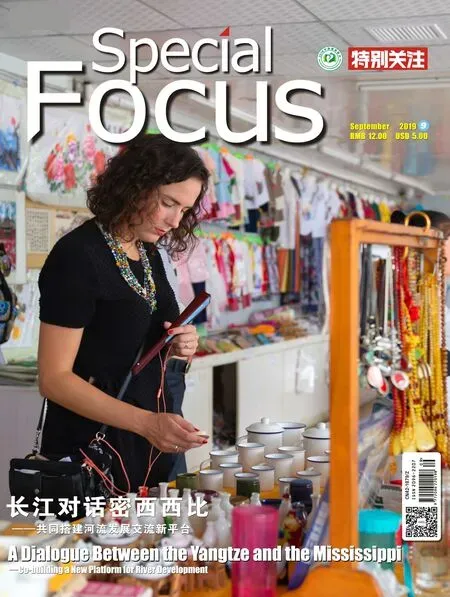Seeing People via the Library
By Liu Yong
I have a friend who is very influential in the political community and is known for being particularly good at discovering talented people and finding them suitable positions. One day, I asked him how he chose the right person for the right job. He told me frankly.
“My information about personnel comes half from the personnel files in office and half from the library. Just as our unit was established, I first decided to set up a mini library to meet the needs of my colleagues for some necessary dictionaries and series of books, and then I asked every employee to recommend five books they wanted to read every year for public procurement. From their recommendations and borrowing records, I get to know everyone better.”
“If a staff member who recommends five books himself never borrows them but picks out such things as movie magazines, will this person be honest and motivated? On the contrary, if a person finishes the books they recommend and borrows many good books recommended by others, I will certainly be impressed.”
“A person can be judged by the books he reads, because they will seldom borrow books they aren't interested in. If you are more attentive, you can analyze an employee's psychology and know their working style from the types and frequency of books they borrow. For example, if they borrow many reference books of the same topic in a particular period, it means they are engaging deeply in this field. If a person who used to borrow academic books suddenly switched to novels and pictorials, they might be experiencing some changes in life and in their psychological state. Often paying attention to the staff's reading habits helps superiors know their subordinates well. Whenever I talked to a staff member after noticing a big change in their borrowing habits, problems related to themselves or work were often solved in a timely fashion.”
“Furthermore, from the nature and categories of the books they read, I can discover their strong points and assign them special tasks accordingly. For example, for someone who often borrows books about foreign languages, I tend to assign them jobs related to foreign languages; for someone who usually borrows literature and history books, I ask them to do the writing work; for someone who frequently borrows art books, I consult them on artistic design. I find that this is much more effective than relying solely on information in their personnel files, which is my secret for managing human resources.”
(From Words of Firefly Window, Jieli Publishing House. Translation: Chen Jiani)
我有一位在政界非常得意的朋友以知人善任闻名。某日,我向他请教用人的方法。他跟我说了这番话。
“我的人事资料一半在人事室,一半在图书馆。这个单位刚成立时,我就决定设立图书馆。而为了配合同仁的需要,除了一些必要的字典、文库之外,我要求每位职员每年推荐五本他想读的书,由公家采购。从推荐的书单和借书的资料当中,我能对每个人有较深的认识。
“你想,一个职员推荐了五本书,却从来不去借,专挑些电影画报之类看,他会是个诚信、进取的人吗?相反,如果一个人不仅读完了自己推荐的书,还借出不少别人推荐的好书,你当然会对他刮目相看。
“通过一个人看的书可以了解这个人,因为不是他喜欢的书,他不会去借;不是他感兴趣的东西,他不会去研究。如果你细细观察,可以从职员借书的类别和次数分析出他的心理和工作情况。譬如他同时借许多同性质的工具书,显示他正从事那方面的研究;一个向来都借学术性书籍的人突然对小说、画报感兴趣,可能他在生活和心理上有所改变。常常注意职员读书的情况,有助于长官对部属的了解。每当我发现某位职员的借书习惯有了大改变而找他们谈话时,常能及时解决许多与他们自身或公事有关的问题。
“此外,从读书的性质和类别也可以看出他们的特长而加以任用。譬如常借外文书的人,我试着给他提供有关外文的工作;常借文史书籍的人,我让他拟写文稿;常借艺术图书的人,我则向他请教美术设计方面的问题。我发现这样做要比全凭人事室资料准确得多,这也就是我用人的秘诀了。”

(摘自《萤窗小语》接力出版社)
- Special Focus的其它文章
- A Dialogue Between the Yangtze and the Mississippi—Co-building a New Platform for River Development
- Christian Fardel and His Love for China's Ancient Navigation Culture
- The Making of a Good Chef
- Differences Between Eastern and Western Architecture
- Story of a Pen Repairman
- Story of a Jade Freak

